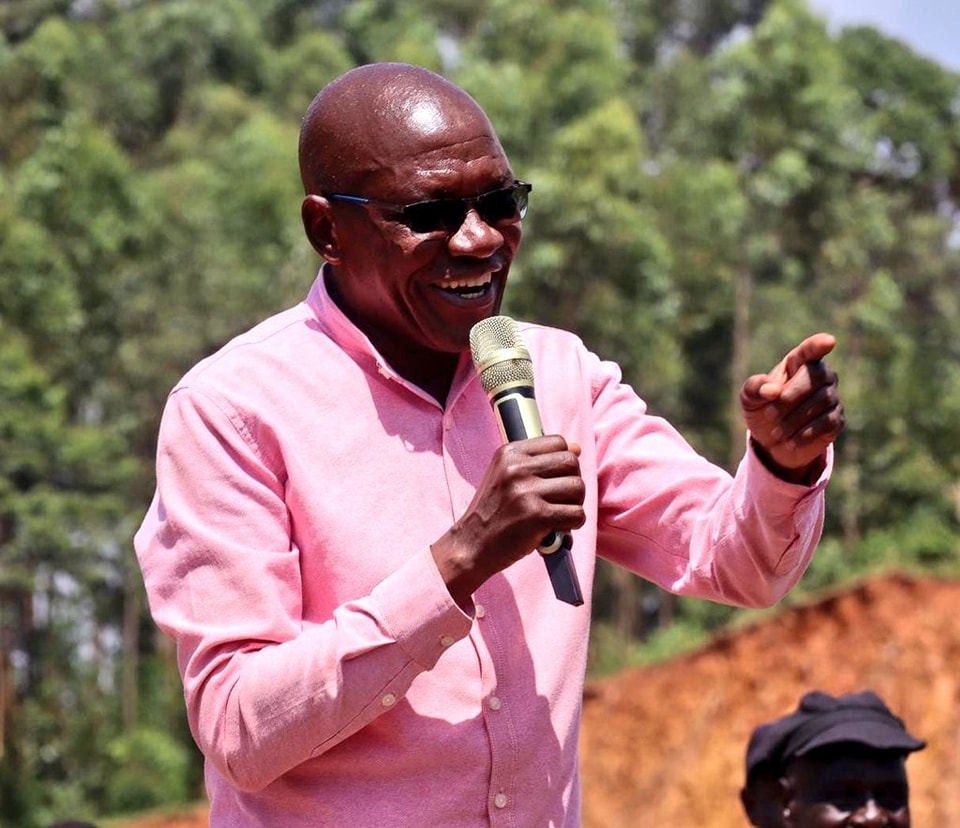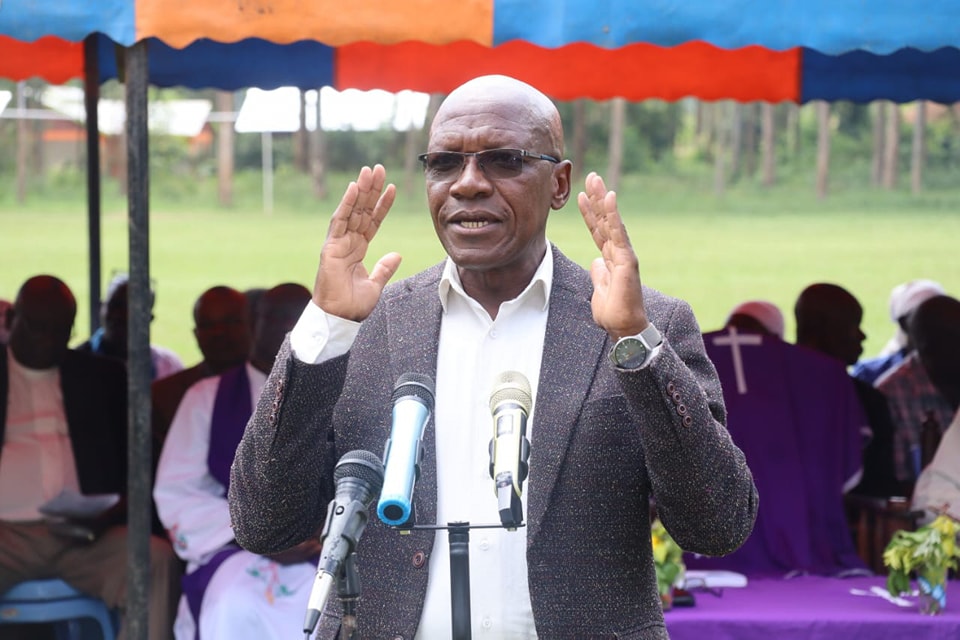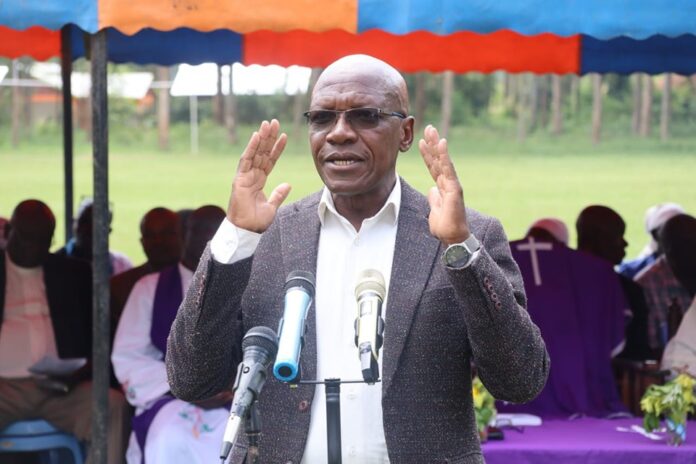By Violet Auma.
In the heart of Kakamega, where politics is as fierce as a bullfight and loyalities shift like the surging currents of River Yala, a political storm is brewing.
As the 2027 elections draw near, the county’s battle lines are being drawn, and all eyes are on one man, the firebrand senator and self-styled “Bullfighter,” Boni Khalwale.
Khalwale is no stranger to the rough terrain of Western Kenya politics. His career spans decades, defined by dramatic political battles, fiery rhetoric, and strategic realignments.
For decades, Khalwale has thrived on the adrenaline of political duels, charging into contests with the bravado of a matador staring down a raging bull.
But this time, the battle is different. Whispers of his quiet departure from President William Ruto’s United Democratic Alliance (UDA) have sent shockwaves through Western Kenya’s political corridors.
If true, could this realignment be the masterstroke that finally delivers him the coveted Kakamega gubernatorial seat, or will it backfire?
To understand Khalwale’s gamble, one must revisit his political journey a career defined by dramatic battles, sharp oratory, and a nose for the next winning team.

His rise began in 2002 when he clinched the Ikolomani parliamentary seat, quickly gaining national prominence as the chair of the Public Accounts Committee.
Armed with a booming voice and an unrelenting pursuit of corrupt officials, he built a reputation as an anti-graft warrior, earning him admirers and enemies in equal measure.
In 2013, he rode the Amani Coalition wave to secure the Kakamega Senate seat, but his political compass shifted soon after.
By 2017, he vied for gubernatorial race and lost to ODMs Wycliffe Oparanya for his second term as governor.
As the 2022 elections approached, Khalwale pulled off another classic move, jumping ship to Ruto’s Kenya Kwanza alliance, securing a Senate comeback under UDA.
Now, barely two years later, the political winds seem to be pushing him away from UDA. What’s driving this shift, and where will he land next?
Political analyst Barrack Muluka believes Khalwale, despite being the Senate Majority Chief Whip, is strategically moving away from UDA due to the party’s dwindling popularity in Western Kenya.
“Khalwale is politically astute. He understands the pulse of the people, and he knows that UDA’s influence in Kakamega is waning,” Muluka says. “He is very carefully rearing his way away from there. As elections approach, you will see more politicians fleeing UDA while still enjoying its benefits in the meantime.”
UDA’s grip on Western Kenya is slipping, and Khalwale knows it. The region’s leaders had thrown their weight behind Ruto in exchange for promised development projects, but those pledges have largely remained unfulfilled.
First, the perceived failure of President Ruto to honor agreements with Western Kenya leaders has caused widespread disillusionment.
Ruto had promised significant development projects for the region in exchange for support from Musalia Mudavadi (Prime Cabinet Secretary) and Moses Wetang’ula (National Assembly Speaker). However, critics argue that little has been delivered.
Instead, Ruto has been launching small-scale projects such as markets, transformers and water initiatives that fall under county governments, rather than national-level investments.

Khalwale may be calculating that staying in the party could become a liability.
His strength lies in his deep grassroots connections. Unlike Governor Barasa, who is often criticized for a corporate-style leadership that keeps him away from the masses, Khalwale thrives on direct voter engagement.
His fiery speeches, strategic political shifts, and ability to read the electorate’s mood have kept him relevant over the years.
However, despite his experience and charisma, his gubernatorial bid faces hurdles.
If Khalwale truly parts ways with UDA, his next move will be crucial. Will he return to ODM, despite the party being in a political truce with Ruto’s government? Or will he seek refuge in another formation, perhaps Eugene Wamalwas DAP-K or a new coalition yet to be born?
Without a strong political vehicle, Khalwale risks losing campaign funding, structured party support, and a crucial voter base. But beyond party politics, he must also contend with formidable rivals.
Governor Fernandes Barasa, the man Khalwale seeks to unseat, is no pushover. Despite facing criticism for his corporate-style leadership, Barasa has ODM’s deep grassroots machinery backing him.
His incumbency gives him access to county resources and the ability to roll out development projects that could sway voters.
Then there’s former Kakamega Senator Cleophas Malala, a youthful and aggressive politician who lost to Barasa in 2022 by a narrow margin.
Malala, once a close ally of Ruto, has since fallen out with UDA and could return to the race with his own political game plan.
If Khalwale fully exits UDA, he may find himself fighting for the same voter base as Malala, splitting the anti-Barasa vote.
Gender dynamics could also reshape the 2027 race. Kakamega Woman Representative Elsie Muhanda, a fiery grassroots mobilizer from Khalwale’s neighboring Shinyalu constituency, is rumored to be eyeing the seat.
If she runs, her candidacy could disrupt the male-dominated contest, attracting a new bloc of voters who feel it’s time for a woman to take charge.
Meanwhile, Deputy Governor Ayub Savula, another political wildcard, is said to be considering breaking ranks with Barasa to mount his own gubernatorial bid.
If he does, it could significantly alter the race, as Savula’s stronghold overlaps with Khalwale’s in upper Kakamega.
A divided Kakamega vote could play into Barasa’s hands, giving the incumbent an easier path to re-election.
As the dust settles, one thing is certain, Kakamega’s 2027 gubernatorial race will be a high-stakes political brawl. Khalwale has fought and won many battles, but this one could define his legacy.
Will his calculated gamble propel him to the governor’s office, or will he find himself politically outmaneuvered, left to nurse his wounds outside the arena?
Only time will tell if the Bullfighter will raise his fists in victory or bow out of the ring in defeat.




